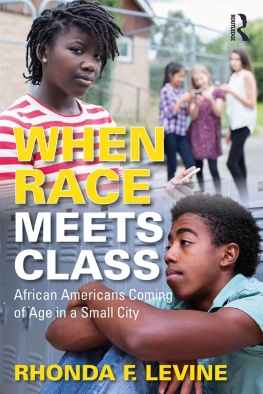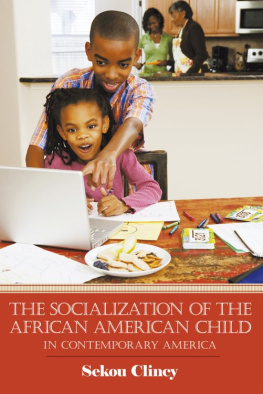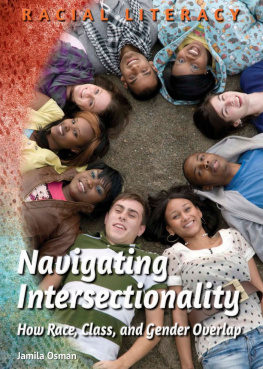When Race Meets Class
A rare, 15-year ethnography, this book follows the lives of individual, low-income African American youth from the beginning of high school into their early adult years. Levine shows how their interaction and experience with multiple institutions (family, school, community) and individuals (parents, friends, teachers, coaches, strangers) shape their hopes, fears, aspirations, and worldviews. The intersectionality of their social identitieshow race, class, and gender come together to influence how they come to think about who they areinfluences many behaviors that directly contradict their stated aspirations. Affected, too, by limited access to resources, these youths often take a path profoundly different from their stated values and life goals. Levine explores the volatility and constraints underlying their decision-making and behaviors. The book reveals the critical junctures and turning points shaping life trajectories, challenging many long-held assumptions about the persistence of racial inequality by offering new insights on the educational and occupational barriers facing young African Americans.
Rhonda F. Levine is Professor of Sociology, Emerita, at Colgate University, USA. She is the author of Class, Networks, and Identity (2001) and Class Struggle and The New Deal (1988), and editor of Enriching the Sociological Imagination: How Radical Sociology Changed the Discipline (2005) and Social Class and Stratification : Classic Statements and Theoretical Debates, Second Edition (2006).
In the best tradition of classic ethnographies like Learning to Labor or Aint No Makin It , Rhonda Levines magnificent new book offers a compelling portrait of the lives of low-income African American adolescents growing up in a small Northeastern city that helps us to understand more about them but also much, much more about the society we live in. Intensely intersectional, When Race Meets Class offers a sophisticated empirical study of race, class, and gender dynamics, as they play out in the lives of the young people she follows, in the institutions they navigate, and within the larger structural arrangements of todays United States. We are reminded not only that coming of age is hard but also that while some navigate adolescence with a wide range of developmentally appropriate supportsroom to explore, grow, mess up, take risks, and figure things outmany do not. In fact, the young people Levine writes about not only seldom receive this kind of consistent support but also must traverse a number of additional constraints. This book is a must read for anyone who wants to understand the how and the why of todays persistent racial inequality.
Amanda Lewis , Professor and Director of the Institute
for Research on Race and Public Policy, University of Illinois at
Chicago, and author of Race in the School Yard
When Race Meets Class is a powerful ethnographic account that illuminates Americas racial divide. It notes, documents, and explains the peculiar manner in which race and class become conflated, and form a conundrum that exacerbates the everyday lives of black people, while underscoring the nations racial divide. Levines narrative shines a brilliant and provocative light on these circumstances, revealing the peculiar everyday challenges black people face as they bear the burden of race and persistent poverty simultaneouslythis a work of importance, and one that should be read far beyond the academy.
Elijah Anderson , William K. Lanman Professor of Sociology,
Yale University, and author of Code of the Street and, most recently,
The Cosmopolitan Canopy
When Race Meets Class provides a much-needed contribution to the understanding of how race, class, and gender reproduce inequality. The rich qualitative analyses show us in ways that few have done since Stacks All Our Kin that the disadvantages of race, class, and gender are not individual. Moreover, one has to look over the long run to understand what happens when race, class, and gender intersect. Understanding these dynamics is necessary in order to understand how inequality works.
Nancy DiTomaso , Distinguished Professor, Rutgers
Business School, and author of The American Non-Dilemma: Racial Inequality Without Racism
In a rare study, Levine vividly conveys African American students experiences of racial marking by high school educators and other pivotal moments in their life paths. Poignant, illuminating, and very readablean extraordinary longitudinal portrait of the power of race and class in a small city.
Annette Lareau , Edmund J. and Louise W. Kahn Professor
in the Social Sciences, University of Pennsylvania, and
author of Unequal Childhoods
Strengthened by rare insight from her 15-year study, Levine links life history with the present in her provocative commentary on the experiences of young African Americans coming of age in a small city. By reflecting on their attitudes, opinions, and stories of strugglewith subtle and not so subtle forms of racismLevine helps us to understand both the power of racial marking and the ways in which African American bodies are marked as problematic or threatening in schools, community institutions, and public spaces. And because of the unique duration of her analysis, she is able to reveal how the choices made by young African Americans, often in response to this form of marking, leave them facing disadvantage and despair as young adults.
Alford Young, Jr. , Arthur F. Thurnau Professor, University of
Michigan, and author of Are Black Men Doomed?
When Race Meets Class
African Americans Coming of Age in a Small City
Rhonda F. Levine
First published 2019
by Routledge
52 Vanderbilt Avenue, New York, NY 10017
and by Routledge
2 Park Square, Milton Park, Abingdon, Oxon, OX14 4RN
Routledge is an imprint of the Taylor & Francis Group, an informa business
2019 Taylor & Francis
The right of Rhonda F. Levine to be identified as author of this work has been asserted by her in accordance with sections 77 and 78 of the Copyright, Designs and Patents Act 1988.
All rights reserved. No part of this book may be reprinted or reproduced or utilised in any form or by any electronic, mechanical, or other means, now known or hereafter invented, including photocopying and recording, or in any information storage or retrieval system, without permission in writing from the publishers.
Trademark notice : Product or corporate names may be trademarks or registered trademarks, and are used only for identification and explanation without intent to infringe.
Library of Congress Cataloging-in-Publication Data
A catalog record for this title has been requested
ISBN: 978-0-367-13488-4 (hbk)
ISBN: 978-0-367-13489-1 (pbk)
ISBN: 978-0-429-02720-8 (ebk)
Typeset in Adobe Caslon Pro
by Deanta Global Publishing Services, Chennai, India
Contents
How is a 15-year ethnographic study that follows the lives of individual, low-income African American youth from the beginning of high school into their early adult years autobiographical, in any way imaginable, for a middle-aged white woman?
I asked myself this question when I thought about a conversation I had, years ago, with a colleague. She thought all intellectual work, and by extension research, was in a certain way autobiographical. That made some sense to me. Decades ago, my dissertation research and first book included an in-depth look at the labor movement and the development of industrial unions. My father was a staunch union man, as was his father, my grandfather. Researching the heyday of unionism in the United States and plowing through labor and union archives gave me a deeper appreciation of the role unions played in American history and society, on the macro level, but also on a micro level, in the (Frank) Levine family, my family of origin. My second major piece of research was an ethnographic account of German Jewish cattle dealers who left Germany in the late 1930s, resettled in south central New York, and dominated cattle dealing in New York state until the late 1970s. They maintained a strong ethnic identity while residing in small rural towns with few other Jewish families. While not of German Jewish background (I am a third generation Eastern European Jew) and though none of my close relatives were either refugees or survivors of Nazism, I did however share a few similarities with those in my studyI am Jewish and have a Jewish identity even though I did not grow up in a predominantly Jewish neighborhood like so many of my Jewish friends.







